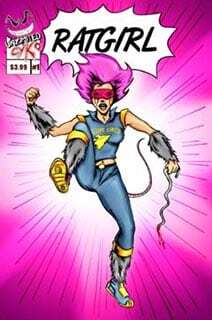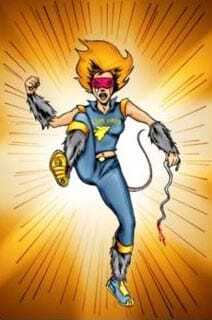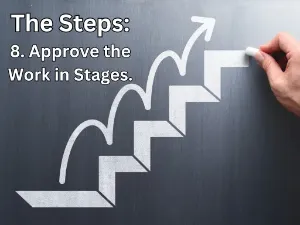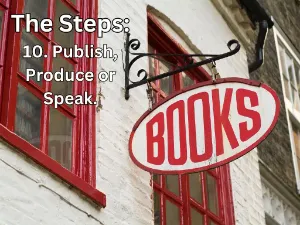Book-to-screenplay adaptation with expert script consulting services.
By- David Santo
Being a working screenwriter is enormously rewarding. Writing meaningful stories for people is the greatest joy of my life. In a way, I’m relentlessly optimistic about the art, craft, and business of screenwriting.
Now whether you’re adapting your writing from a novel into a screenplay or a poem into video game you bump into all kinds of problems. And I will get to a 12-point checklist on that in a sec but first we need a story to use as an example.

The know-it-alls in the film business
Now you must know one particularly important thing about adapting your story into other genres or formats – it’s a lot of work. But that’s not really the issue. Adapting it and following orders is. Agents, producers, directors, actors: everyone knows how your story should go better than you.
And they will tell you what to do. And you must make the changes they want, or you’re fired. Even if they’re not paying you – and especially if they are – you must change your story at their whim, or they won’t work with you again. This is the collaborative nature of TV and film. It will serve you well in the long run to help others achieve their vision and goals.
As a writer it’s your job to show the way.
Then get out of the way.
Also see: The Wild Ride of Screenplay Adaptation.
Comic books = the new hotness!
Nobody I know likes to read scripts. Most people hate reading, period. And they hate reading screenplays even more. What could be more boring than reading a description of a movie? And it’s not even a good description because good screenplays don’t contain acting or directing (you know, the good stuff?) because it frustrates the people who do those things. Actors and directors don’t like being told how to do their job so if you include that stuff in your script, they throw it in the trash.

But a comic book or graphic novel?
Sweeeet.
People dig that chili.
At comic cons, they hold my comic book like a coveted chalice and say things to me like; “What up, boyo? You is official! I love this!” Then they shake my hand and ask for an autograph. Comic books and graphic novels are freaking cool. And if you don’t feel the vibe then me trying to explain it will only make things worse.
Now there are basically two different formats for writing a comic book: “outline” and “full” style. I prefer full because the artists I know are dependent on my input to draw. If I don’t describe (as best as possible) what’s going on they’re not sure what to do. But know this – nobody is going to read your comic book script, so it doesn’t matter what style you select – just pick one and get started.
Then rewrite it for weeks and weeks. Then set it aside for a week. Then come back to it with fresh eyes and rewrite it again. And if you think all this rewriting is overkill then you’re not a writer. EX: I wanted my book to be a real page turner, so I made sure every single page ended with a question; that way you had to turn the page to get the answer. Now most of the time it was a question in the dialogue but continuing action from page to page is like a question begging to be answered and is even better.
So, after you write your book you must make your book (because no one will read it otherwise) which means you need to hire pencilers, inkers, colorists, letterers. Then when it’s finally done you pay a printer to print it. After this is done somebody might actually read your book. And they may also want to see a screenplay. Then you get to adapt it.

Glass breaks — a woman screams — gunfire
Screenwriting is a peculiar form of writing. The words sit on the page in a very unusual fashion. Now there’s a good reason for this but that’s a discussion for another time. If you want to adapt your idea or short story or novel or comic book into a screenplay Final Draft is a popular screenwriting software. And if you’re not sure how to write a screenplay (shameless plug) then may I suggest you read my book Screenwriting: A Practical Guide for Writing a Film.
Then hang on.
I’ve been a screenwriter for hire and a script doctor for 20 years and it’s tricky. In other mediums – say a novel – you can discuss the nuanced thought process of eating a cookie and how it evokes all kinds of childhood memories then ramble on further about exactly what this means to you and why you think it’s important. But if you take this same scene and put it on-screen all you see is some dude eating a cookie.
What a thrill!
So, writing for the screen means these core items must be present when you adapt your story. And here’s that 12-point checklist I promised you earlier.
- Know what your story is about. This sounds so blatantly obvious as to be stupid. But how many times have you asked someone about a movie they just saw, and they prattle on in some incoherent fashion: this happened – that happened – this happened – no wait – this happened first -and on and on. It’s never clear what the point is. Well, a lot of people write that way and don’t realize it.
- Make sure you know who the star is (because the camera follows the money – star money).
- Make sure your hero has an external goal to accomplish – you know, something you can shoot with a camera or draw or make with CGI.
- – 11. And there’s lots of other stuff: plot, character, theme, setting, action, dialogue, point of view, the world where the story takes place. I got three pages of this stuff and I use a checklist, so I don’t forget anything. And these are the things that all stories share.
- Stick with the visually loud stuff; the emotionally powerful stuff. It translates well onto the screen.
Before the final curtain
If you’re adapting your story and moving into different platforms get ready for a bumpy ride. But I’m rooting for you. I love seeing story tellers succeed. And if you do succeed, maybe one day, you’ll write something snappy about the whole experience like…
They tried to kill my idea.
They failed.
I’m a 47-time award-winning screenwriter, producer, and director. My interviews have appeared in FOX, NBC, CBS online. I’ve sold 6 scripts. I have 4 produced movies. My book on how to write screenplays went to #1 on Amazon Kindle. And I have a literary manager named Lisa Simpson (real name). That’s a long-winded way of saying –
I’m a screenwriter. And I’m a script consultant. (And he is no longer under contract to this company).
Epilogue by Michael McKown
Ghostwriters Central has many fine screenwriters on staff. Scroll down this page to the photo gallery to see who they are. Our writers know of what it takes to write a successful screenplay. You can be sure the scripts they write will meet all of Hollywood’s standards. More info on hiring a screenwriter.
We would be thrilled to tell your story! If you’re ready to proceed with your script development, script doctoring or treatment writing, all you have to do is call, text or email.











